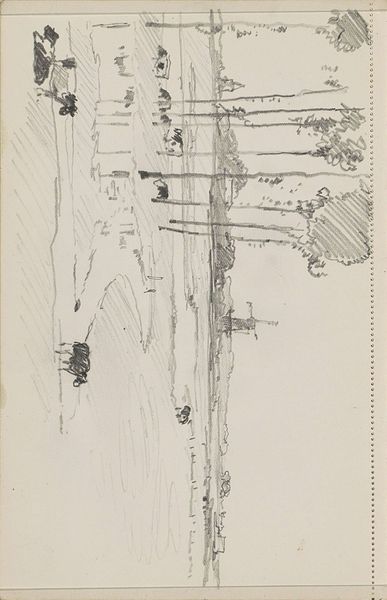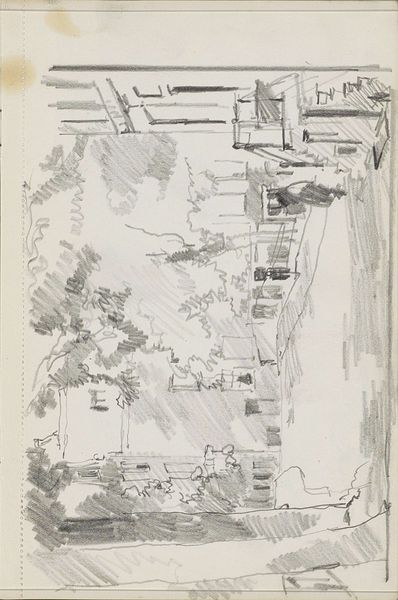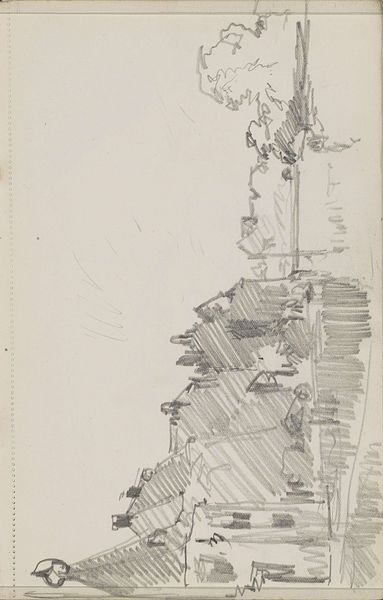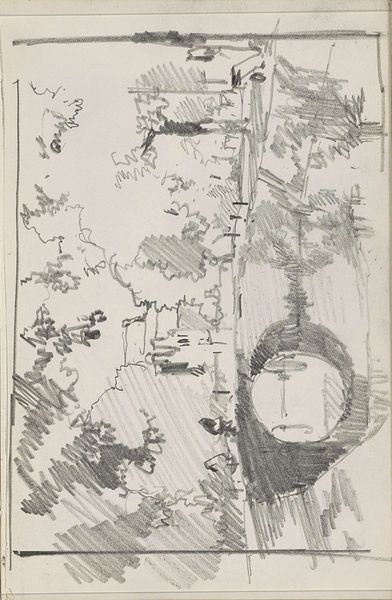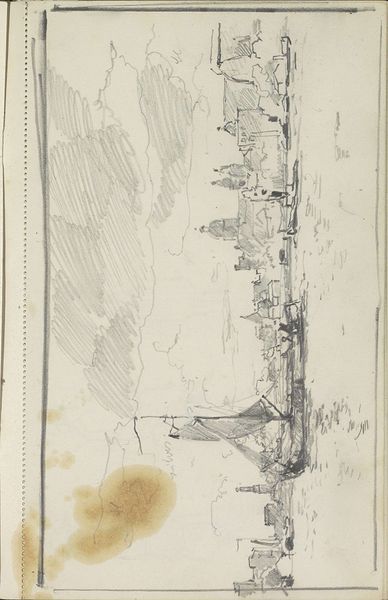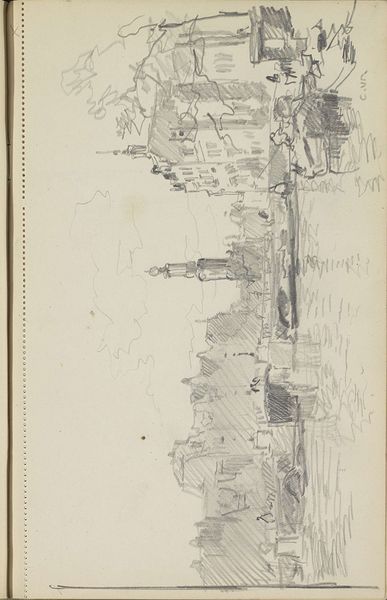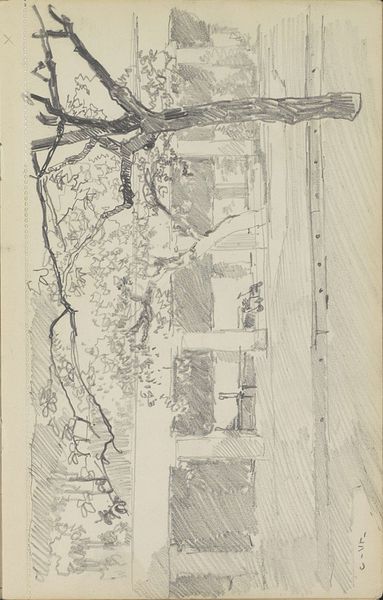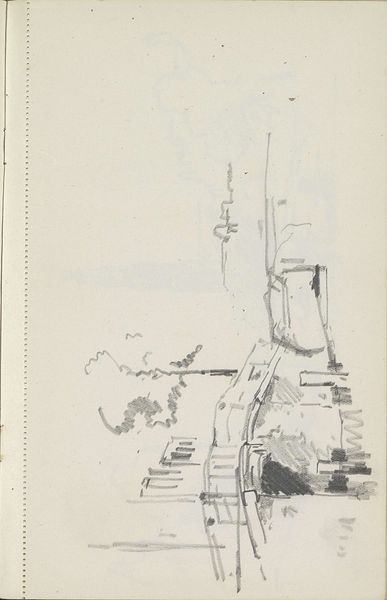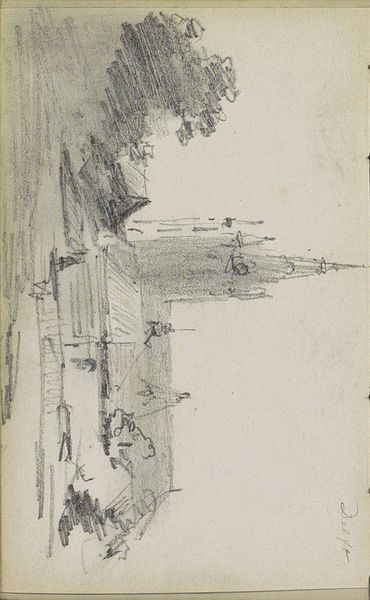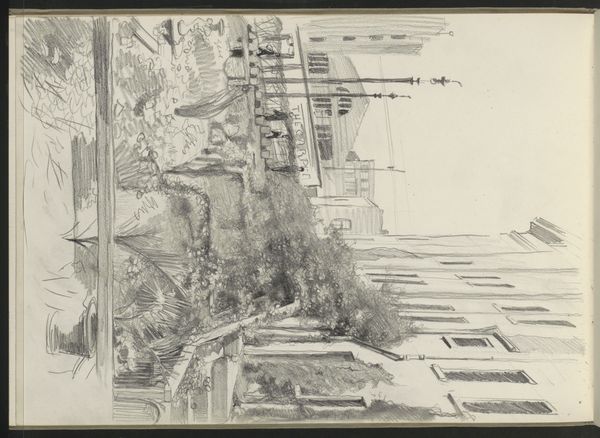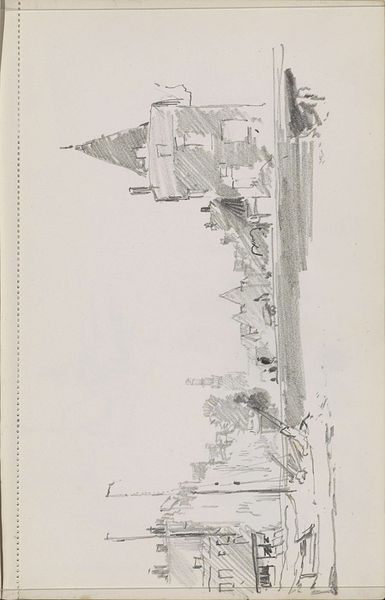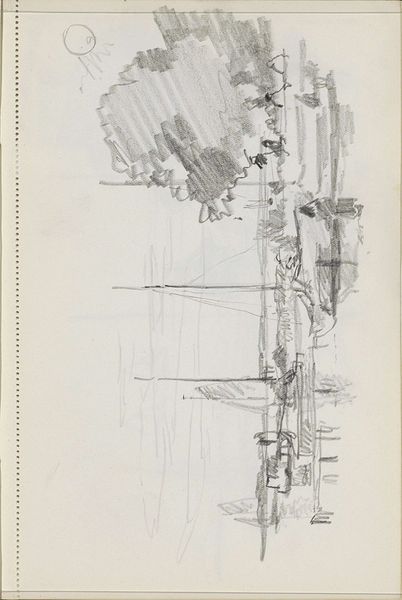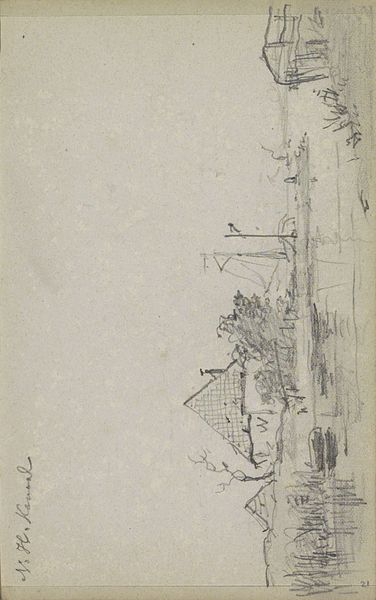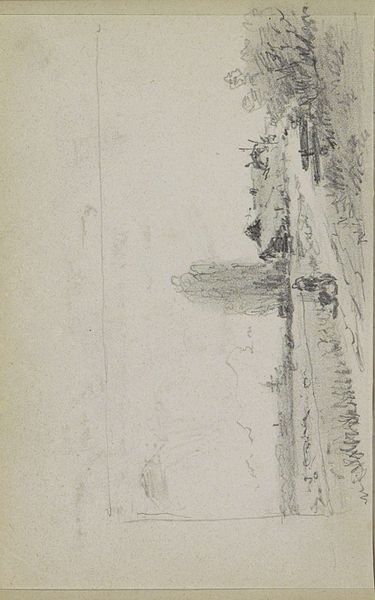
drawing, pencil
#
drawing
#
landscape
#
geometric
#
pencil
#
cityscape
#
realism
Copyright: Rijks Museum: Open Domain
Curator: Here we have Cornelis Vreedenburgh’s pencil drawing, "Bridge Over a Canal in a City," which dates roughly between 1890 and 1946. Editor: There's an immediate tension here between organic and rigid forms. The right side is all geometric precision, those receding arches… whereas the left seems dominated by the wild, textural scrub of the foliage. It gives the composition a disquieting asymmetry. Curator: Yes, and asymmetry is a loaded word in this context. Traditionally, ideal landscapes offered symmetrical harmony. The imbalance could suggest an interest in documenting an evolving, perhaps decaying cityscape. Look at how Vreedenburgh uses light to model the solid architecture, almost anthropomorphizing it as a form of cultural memory, contrasting the constant flux of the organic foliage that encroaches upon it. Editor: It's just a sketch, really. But, precisely as a drawing we see labor. Think of the pencil in Vreedenburgh’s hand. Where was it produced, and of what? Graphite mined and shipped, cedar milled and shaped – this very basic act of production underlies an idyllic sketch, even here. I would suggest that we should focus more attention on those sorts of often ignored facts. Curator: Interesting point! Beyond the socio-economic perspective, the act of sketching allows a raw glimpse into the artist's subjective filtering. It lacks the deliberate 'finish' of painting. Vreedenburgh might be hinting at an unseen emotional element by obscuring the solid forms using chaotic strokes. Did he want us to look beyond the aesthetic into a psychological space? Is there a hidden dialogue between man and place? Editor: The means of production, and its underlying systems of labor, are far from psychological projections though. But in seeing the city reduced to a simple drawing, don't you think we overlook that history – all the people who labored to build it – their stories lost? Curator: It certainly raises complex points to ponder, as we appreciate this particular artwork, "Bridge Over a Canal in a City". Editor: Agreed. Considering materials and the historical forces around this landscape makes a fresh interpretation possible.
Comments
No comments
Be the first to comment and join the conversation on the ultimate creative platform.
